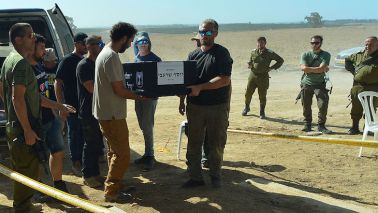An earthquake of 6.2 magnitude hit Istanbul in the early afternoon. Lasting around 20 seconds, the city was sent into panic, with most of the residents rushing to the streets, looking for some of the rare open areas in the densely built quarters. Although no deaths or major damage have been reported so far, the unpreparedness of the city was obvious from the first moment.
I arrived at the closest designated assembly zone – the courtyard of a mosque – and found the gates locked. When the local imam finally turned up, he was not even aware that it was an assembly zone. His confidence that the Fatih quarter is a holy place in Islam, thus no harm would befall the residents here, was not too reassuring.
After shocks can still be felt, and authorities warn that more, potentially bigger earthquakes could follow. Citizens were told to stay outside and avoid buildings until further notice. In parks and other open areas, families are settling for spending the night with thick blankets and even some tents being pitched.
‘So far we haven’t heard of any deaths,’ said a fireman standing by their station. ‘Someone got injured, though, because he panicked and jumped out a window. We are on full alert. All vacations have been cancelled and everyone has been called to the fire departments on standby.’
The epicentre of the earthquake was in Silivri, a town just outside Istanbul on the coast of the Sea of Marmara. The governor of Istanbul announced on his social media that 151 people are being treated for injuries. In the same post, he stated that no destruction took place in the city – a claim that turned out to be incorrect.
In the historic Balat neighbourhood, men gathered around a collapsed building, taking photos. The old house was empty as it had burned down a year before. The collapsing rubble knocked out a garden wall across the street. No one was injured. A rugged old man was already climbing over the rubble, collecting scrap metal.
‘I was asleep in the building next to it,’ said Cengiz. ‘Suddenly, the ground started shaking. I fled from the house just as this other building collapsed. I was never this afraid in my life. It was the first time I felt an earthquake. The people on the street were in complete panic, pouring out onto the streets carrying bags and blankets. I’m definitely spending today on the streets.’ Large cracks appeared on the walls of his building, too.
The network of the main telecom providers temporarily collapsed in the immediate aftermath. For a while, locals struggled to get through to their loved ones to check whether they were all right. The electronic alert system also largely failed, with iPhones remaining silent, only Android phones pinging – shortly after the quake.
Earthquakes are inevitable, but the damage can be hugely mitigated through adequate preparation and construction. Despite most of the country being prone to large earthquakes, Turkey is not doing well in that regard. Two years ago, a 7.6-strong earthquake hit the south of Turkey, and over 50,000 people perished. In comparison, when the considerably stronger 9.1 quake hit the much more densely populated Japan in 2011, followed by a devastating tsunami, fewer than 20,000 died.
Experts have been warning for decades that a massive earthquake could hit Istanbul at any moment. Yet, much of the housing stock is not earthquake resistant, either too old or built without following regulations. Designated assembly zones are inadequate, and many have been sold off to private development.
Although the damage this time appears to be limited, it was a wake-up call for the authorities. The question now is whether rapid, earthquake-resistant redevelopment will take place alongside the preparation for a solid emergency plan. Considering their actions following previous earthquakes, there is little room for optimism.






Comments